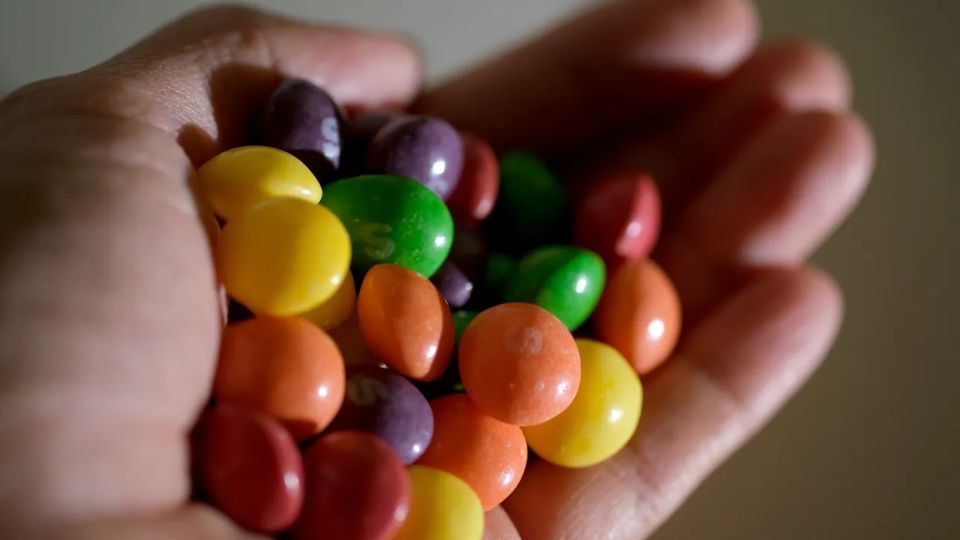The Illinois Senate approved a bill on Thursday that would prohibit the use of four food additives commonly found in products such as candy, soda, and baked goods.
The Illinois Food Safety Act, also known as Senate Bill 2637, was approved with a bipartisan vote of 37-15. It will now move to the House for further consideration. The chemicals that would be banned are brominated vegetable oil, red dye No. 3, propylparaben, and potassium bromate.
These additives are used in many different types of food products. Brominated vegetable oil is a substance that helps prevent citrus flavoring in sodas from separating and floating to the top. Propylparaben and potassium bromate are substances that are added to baked goods to help preserve them and extend their shelf life. Red dye 3 is a type of food coloring that is often used in candy and other products.
“This legislation does not aim to prohibit any product or remove any of our favorite foods,” stated bill sponsor Senator Willie Preston, a Democrat from Chicago, during a news conference on Wednesday. “This action creates an example for protecting the health and safety of consumers, in order to motivate food manufacturers to change their recipes and use safer ingredients.”
Last year, the U.S. Food and Drug Administration suggested taking away the permission for using brominated vegetable oil. This decision was made after a study discovered that the chemical can harm the thyroid and have negative effects on health. A study conducted by the Center for Science in the Public Interest, a nonprofit organization that advocates for public health, has found that red dye 3 could potentially cause cancer in animals. The International Agency for Research on Cancer, which is a part of the World Health Organization, discovered that potassium bromate may cause cancer.
Also Read: Pennsylvania Tow Company Owner Scamming Accused Nearly $300k From Customers
The bill had support from both sides of the aisle in the Senate, with both Sen. Seth Lewis, a Republican from Bartlett, and Sen. Steve McClure, a Republican from Springfield, voting in favor of it.
The FDA banned the use of Red dye 3 in makeup more than 30 years ago. The FDA does not permit using it on your face for makeup. McClure said in the Senate on Thursday that children are still eating this candy. “That is very shocking to me. Therefore, I am voting for this bill.
Preston had mentioned before that he was thinking about including titanium dioxide in the ban, but that idea was dropped during discussions. He mentioned that if more research becomes available, they will consider that option in the future. In 2021, the European Food Safety Authority expressed worry that titanium dioxide might change people’s DNA.
The bill has faced opposition from industry groups like the Illinois Manufacturers’ Association during the legislative process. In January, the IMA expressed their disagreement with “this well-intentioned legislation.” They believe that it would weaken the FDA and have a negative effect on Illinois’ economy by creating a complex and expensive set of regulations.
The National Confectioners Association released a statement expressing their concerns about the bill. They believe that it would lead to higher food prices, lower consumer trust, and cause confusion regarding food safety. The group also stated that food regulation should be based on the scientific standards of the FDA.
Also Read: Pennsylvania House Dems Propose New Expulsion Rules After Remote Voting by Lawmaker
California approved a similar bill last year, which will start in 2027. The New York Senate is currently discussing a similar bill. Some food additives are already controlled or prohibited in certain parts of the European Union.
The Illinois bill was changed from a previous version to give retailers more time to follow the rules. The manufacturing of products with these additives will be prohibited starting from January 1, 2027. The sale, delivery, distribution, and storage of products containing these additives will be banned starting in 2028.
“We have given retailers an extension for an extra year to comply,” Preston said. “We have no intention of imposing fines that would cause businesses to fail.”
If someone breaks the rules, they can be fined up to $5,000 for the first time and up to $10,000 for each time after that. Both Lewis and McClure voted for the bill, but they mentioned that they would like future laws to explain how fines are calculated and what counts as a single violation.



Leave a Reply